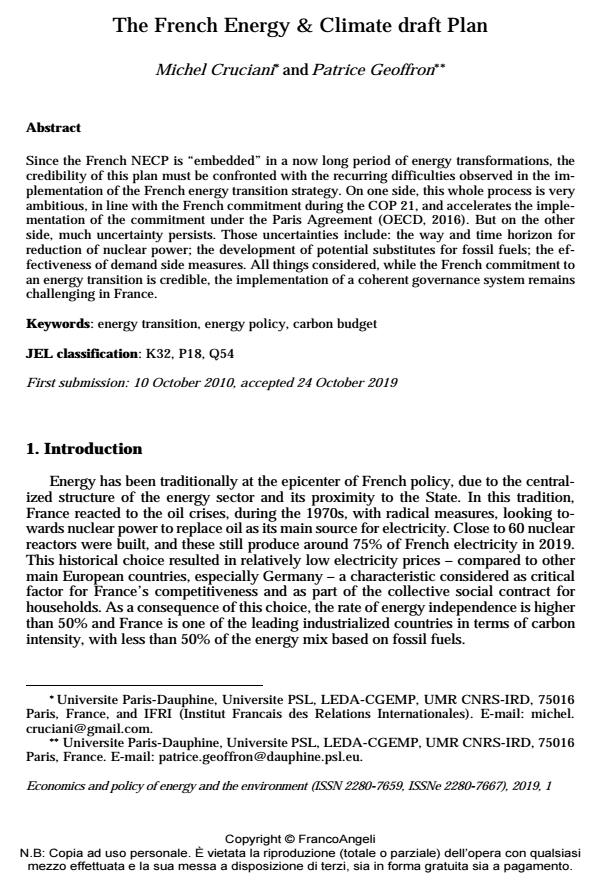The French Energy & Climate draft Plan
Journal title ECONOMICS AND POLICY OF ENERGY AND THE ENVIRONMENT
Author/s Michel Cruciani, Patrice Geoffron
Publishing Year 2019 Issue 2019/1
Language English Pages 12 P. 73-84 File size 119 KB
DOI 10.3280/EFE2019-001005
DOI is like a bar code for intellectual property: to have more infomation
click here
Below, you can see the article first page
If you want to buy this article in PDF format, you can do it, following the instructions to buy download credits

FrancoAngeli is member of Publishers International Linking Association, Inc (PILA), a not-for-profit association which run the CrossRef service enabling links to and from online scholarly content.
Since the French NECP is "embedded" in a now long period of energy transformations, the credibility of this plan must be confronted with the recurring difficulties observed in the implementation of the French energy transition strategy. On one side, this whole process is very ambitious, in line with the French commitment during the COP 21, and accelerates the implementation of the commitment under the Paris Agreement (OECD, 2016). But on the other side, much uncertainty persists. Those uncertainties include: the way and time horizon for reduction of nuclear power; the development of potential substitutes for fossil fuels; the effectiveness of demand side measures. All things considered, while the French commitment to an energy transition is credible, the implementation of a coherent governance system remains challenging in France.
Keywords: Energy transition, energy policy, carbon budget
Jel codes: K32, P18, Q54
- European Roadmaps to Achieving 2030 Renewable Energy Targets Giacomo Di Foggia, Massimo Beccarello, in SSRN Electronic Journal /2024
DOI: 10.2139/ssrn.4770915 - European roadmaps to achieving 2030 renewable energy targets Giacomo Di Foggia, Massimo Beccarello, in Utilities Policy 101729/2024 pp.101729
DOI: 10.1016/j.jup.2024.101729
Michel Cruciani, Patrice Geoffron, The French Energy & Climate draft Plan in "ECONOMICS AND POLICY OF ENERGY AND THE ENVIRONMENT" 1/2019, pp 73-84, DOI: 10.3280/EFE2019-001005